IMO's Safety and Environment Achievements of 2015
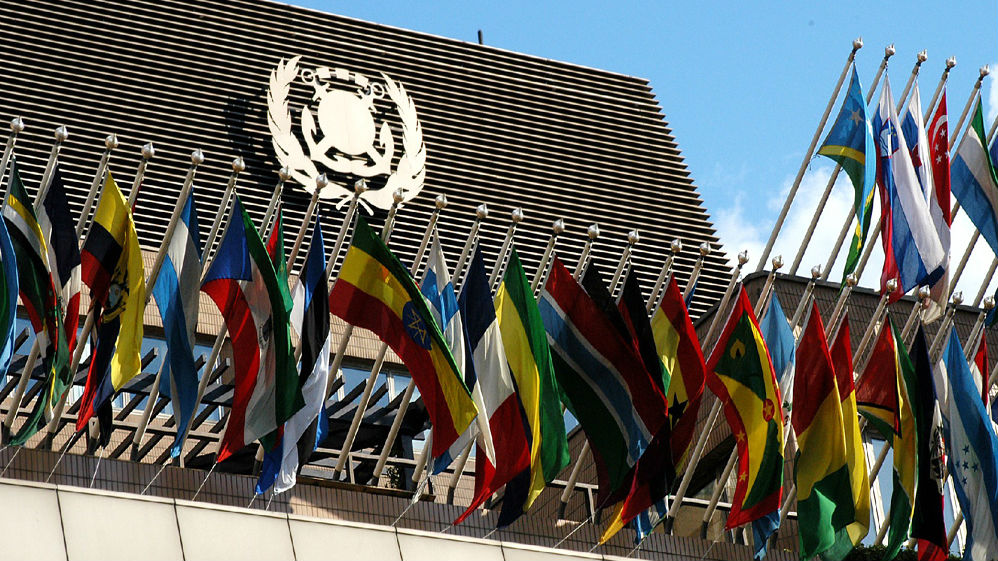
The IMO pursued a range of safety and environmental protection initiatives in 2015:
Safety
Domestic ferry safety
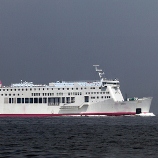 An IMO conference in Manila, the Philippines, adopted guidelines on the safe operation of coastal and inter-island passenger ships not engaged in international voyages. The guidelines address purchasing, converting or modifying second-hand ships for use in domestic passenger services, changes in operating limits, counting passengers and voyage planning. The guidelines can also be used to check the daily operation of ships that are already providing passenger services. The conference urged States that need it to seek technical assistance relating to domestic ferries from IMO or from other States.
An IMO conference in Manila, the Philippines, adopted guidelines on the safe operation of coastal and inter-island passenger ships not engaged in international voyages. The guidelines address purchasing, converting or modifying second-hand ships for use in domestic passenger services, changes in operating limits, counting passengers and voyage planning. The guidelines can also be used to check the daily operation of ships that are already providing passenger services. The conference urged States that need it to seek technical assistance relating to domestic ferries from IMO or from other States.
Gas fuel safety
A new mandatory code for ships fuelled by gases or other low-flashpoint fuels (IGF Code), together with associated SOLAS amendments, were adopted. The use of gas as fuel, particularly LNG, has increased in recent years due to its lower sulfur and particulate emissions than fuel oil or marine diesel oil.
But such fuels pose safety challenges. The IGF Code contains mandatory provisions for the arrangement, installation, control and monitoring of machinery, equipment and systems using low-flashpoint fuels, to minimize the risk to the ship, its crew and the environment. Ships constructed after the code’s expected date of entry into force of January 1, 2017 must comply with its requirements. The related amendments to the STCW Convention and Code on requirements for training and certifying personnel serving on ships subject to the IGF Code were also adopted.
Bulk cargo liquefaction
IMO took action to warn ship Masters of the possible dangers of liquefaction associated with carrying bauxite. This followed consideration of the investigation into the loss of the 10-year-old bulk carrier Bulk Jupiter, which was carrying 46,400 tons of bauxite when it sank rapidly with 18 fatalities in January 2015. The investigation suggested cargo liquefaction led to loss of stability. Further research to evaluate the properties of bauxite is being carried out, with a view to amending the IMSBC (International Maritime Solid Bulk Cargoes) Code in future.
Guidelines on fatigue
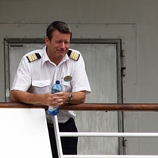 A review of the IMO guidelines on fatigue was initiated by the Sub-Committee on Human Element, Training and Watchkeeping. The review will take into account a holistic, risk based approach looking at the impact of fatigue at all levels and will provide practical tools for fatigue management. The work will be completed over the Sub-Committee’s next two sessions.
A review of the IMO guidelines on fatigue was initiated by the Sub-Committee on Human Element, Training and Watchkeeping. The review will take into account a holistic, risk based approach looking at the impact of fatigue at all levels and will provide practical tools for fatigue management. The work will be completed over the Sub-Committee’s next two sessions.
Training for polar regions
Requirements for training and certifying personnel serving on ships operating in polar waters were agreed, in the form of amendments to the STCW Convention (International Convention on Standards of Training, Certification and Watchkeeping for Seafarers) and Code. The draft amendments reflect the training requirements in the International Code for Ships Operating in Polar Waters (the Polar Code).
Passenger ship training
Mandatory crowd management training for key personnel was agreed, in principle, in a review of passenger ship training requirements. The review is part of the long-term action plan on passenger ship safety agreed following the Costa Concordia incident in January 2012 and is expected to be finalized in 2016.
Review and modernization of the GMDSS continued
Progress was made on the review of the Global Maritime Distress and Safety System (GMDSS). The GMDSS defines the radio communication equipment and procedures to be used in distress situations, and it became fully operational in 1999. A modernization plan, which will take into account new technologies, is expected to be completed in 2017 and approved in 2018.
Passenger ship safety - draft SOLAS amendments on evacuation analysis approved
Requirements for evacuation analysis will be extended to all passenger ships, not just ro-ro passenger ships, as part of the ongoing work program to improve passenger ship safety. Draft amendments to SOLAS to clarify when watertight doors may be opened during a voyage were also approved. These will apply to all ships.
The long-term action plan on passenger ship safety was updated, to include among other initiatives, development of guidelines for comprehensive risk assessment, passage planning and position monitoring; effective bridge resource management and to remove distractions.
Environmental Protection
Polar Code environmental provisions adopted
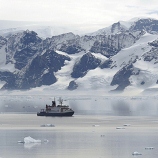 The environmental part of the International Code for Ships Operating in Polar Waters (the Polar Code) was adopted. The Polar Code covers the full range of design, construction, equipment, operational, training, search and rescue and environmental protection matters relevant to ships operating in waters surrounding the two poles. The environmental part of the Code is mandatory and covers prevention of pollution by oil, control of pollution by noxious liquid substances in bulk, prevention of pollution by sewage and garbage from ships, adding additional restrictions to the discharges permitted under MARPOL.
The environmental part of the International Code for Ships Operating in Polar Waters (the Polar Code) was adopted. The Polar Code covers the full range of design, construction, equipment, operational, training, search and rescue and environmental protection matters relevant to ships operating in waters surrounding the two poles. The environmental part of the Code is mandatory and covers prevention of pollution by oil, control of pollution by noxious liquid substances in bulk, prevention of pollution by sewage and garbage from ships, adding additional restrictions to the discharges permitted under MARPOL.
Fuel consumption data collection
IMO’s Marine Environment Protection Committee (MEPC) progressed development of a data collection system for ships’ fuel consumption, to help analyze energy efficiency. Proposed text refers to data from ships of 5,000 GT and above, to include the ship identification number, technical characteristics, total annual fuel consumption by fuel type and in metric tons. The collection of transport work and/or proxy data including “design DWT” for cargo weight/volume, distance travelled as being from “berth to berth”, and service hours as “hours not at berth” has been recommended.
The method for collecting the data would be outlined in the ship-specific Ship Energy Efficiency Management Plan (SEEMP). Data would be aggregated into an annual figure and reported by the shipowner or operator to the flag State administration, which would submit them to IMO for inclusion in a restricted-access database.
Great Barrier Reef and Torres Strait protection extended
The eastern limit of the Great Barrier Reef and Torres Strait Particularly Sensitive Sea Area (PSSA) was extended to encompass the south-west part of the Coral Sea, part of Australia’s Coral Sea Commonwealth Marine Reserve (CMR), a remote ocean ecosystem which provides refuge for a wide range of threatened, migratory and commercially valuable species. Associated protective measures to reduce the risk of ship collisions and groundings by separating opposing traffic streams, while ensuring ships keep clear of reefs, shoals and islets were adopted.
Ballast water roadmap
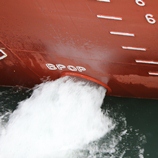 Ships that install ballast water management systems approved in accordance with the current Guidelines (G8) should not be penalized, according to the “Roadmap for the implementation of the Ballast Water Management (BWM) Convention” agreed this year. This means that those systems will not have to be replaced nor sanctions imposed due to the application of the new Guidelines (G8) or due to occasional lack of efficacy, provided they are installed, operated and maintained correctly. The roadmap also invited the MEPC to develop guidance on contingency measures and to expand the trial period associated with the guidance on ballast water sampling and analysis into an experience-building phase.
Ships that install ballast water management systems approved in accordance with the current Guidelines (G8) should not be penalized, according to the “Roadmap for the implementation of the Ballast Water Management (BWM) Convention” agreed this year. This means that those systems will not have to be replaced nor sanctions imposed due to the application of the new Guidelines (G8) or due to occasional lack of efficacy, provided they are installed, operated and maintained correctly. The roadmap also invited the MEPC to develop guidance on contingency measures and to expand the trial period associated with the guidance on ballast water sampling and analysis into an experience-building phase.
Implementing the BWM Convention
Progress has been made in reviewing the guidelines for approval of BWM systems (G8), including agreement on several amendments and, in principle, on making these guidelines mandatory. The MEPC also agreed to amend regulation B-3 of the convention with regard to the schedule of compliance with the ballast water performance standard for ships once the convention enters into force. Both these activities are expected to be finalized at MEPC 69 in April 2016.
Fuel review initiated
The availability review of fuel oil compliant with the global requirements that the sulfur content of fuel oil used on board ships shall not exceed 0.50 percent m/m on and after January 1, 2020, was initiated, with a view to the final report being submitted to IMO in autumn 2016. A steering committee of 13 IMO Member States, one intergovernmental organization and six international non-governmental organizations was established to oversee it.
Oil spill response guidance approved
Two sets of guidelines to assist in oil spill response were finalized and approved – Guidelines on international offers of assistance in response to a marine oil pollution incident and Guidelines for the use of dispersants for combating oil pollution at sea - Part III (Operational and technical sheets for surface application of dispersants). Parts I (Basic information on dispersants and their application) and II (Template for national policy for use of dispersants) have already been approved and Part IV, covering sub-sea dispersant application, is currently under development.
Microplastics report published
A report published the IMO-hosted group GESAMP entitled ‘Sources, fates and effects of microplastics in the marine environment - a global assessment’ identified a number of recommendations to reduce the growing threat from microplastics in the marine environment. GESAMP is the Joint Group of Experts on the Scientific Aspects of Marine Environmental Protection, an advisory body to the United Nations system.
Marine geoengineering study commenced
GESAMP also established a working group on marine geoengineering which could assist London Protocol Parties to identify geoengineering techniques that might be listed listing in the Protocol’s new annex 4. It is expected that the group will prepare a study to provide a better understanding of the potential ecological and social impacts of different marine geoengineering approaches. This group, led by IMO, gained the support of the Intergovernmental Oceanographic Commission of UNESCO and the World Meteorological Organization.
